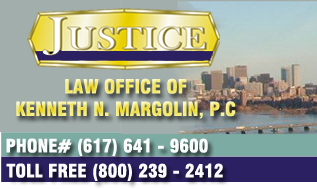

 |
 |
|
PERSONAL INJURY LAW When someone is physically or emotionally injured, or their personal property is damaged, it is considered in law to be a “personal Injury”. The laws covering personal injury allow the injured party to receive compensation for damages caused by someone else’s carelessness, negligence, recklessness, or intentional actions. Personal injury law is also called “tort” law. States and the Federal government have enacted tort laws for the protection of your rights. Tort actions have three elements: there must be a legal duty between the defendant (the one doing the wrong) and the plaintiff (the person injured); there must be a breach of that duty; and, damage must occur because of that breach. When all three elements take place, a personal injury, or tort, has occurred. The laws of our society place demands on all citizens not to harm others. This means that not only should people be safe from harm, but their possessions also. Whenever someone else harms you or something that belongs to you, they become liable to answer to the tort laws governing the situation. Liability can be caused by intentional acts, or torts, or by negligence. An intentional act is one designed to cause harm or injury. The person committing the act wants to harm you. A negligent act occurs when someone fails to take appropriate action and you are harmed as a result of that failure. For instance, if an angry person throws a brick through your car window, that is an intentional tort (it may also be a criminal action). On the other hand, if a careless driver runs into your car, that is a negligence tort. In the first case, the defendant wanted to cause an injury; in the second case, the defendant did not want to injure you but failed to take the appropriate action to prevent injury. In both cases, the defendant had a duty not to injure you or your property, because our laws and society create that duty. The duty was breached by the intentional or negligent actions of the defendant, and damage to your person or property resulted. Another form of person injury law covers “strict liability”. Strict liability means that there is responsibility whether or not negligence was involved. This is usually applied to situations which are in themselves abnormally or inherently dangerous. This concept also occurs in the area of product liability. Manufacturers are charged with the responsibility of assuring that their product is safe when used as directed. If someone is injured by a product, under the terms of strict liability they do not have to prove intent or negligence, only that the product was defective through no fault of their own, and that harm was done. Once a personal injury has occurred, the defendant has a liability to make good the damage done. “Damages” is the term for whatever is owed to you to compensate you for your loss. Damages can be agreed upon by you and the injuring party, through insurance settlements, or by other means. But often the damages offered to you may not fully compensate you for your loss. This is especially true if you have suffered physical injury and have not been able to work. Personal injury law is the mechanism for determining who is in the wrong, or in other words, who is “liable”, and what the liable person should have to pay for the damage caused. If you are the victim of a personal injury, there are several things you can do to help yourself. First of all, make sure that you seek proper medical attention and that you follow up with the proper authorities and your own insurance company. If you believe your injury was caused by the carelessness or intentional act of another, you may want to contact an attorney to discuss this. You should call as soon as it is convenient to do so and avoid discussing the matter with strangers and/or insurance representatives who are not from your own insurance company. You should be cooperative with the police, your own treating physicians, and your own insurance company. Most personal injury cases are covered by a statute of limitations, which means that you only have a certain period of time in which you can file a lawsuit. If you have a personal injury case that you would like us to review please call The Law Office of Kenneth N. Margolin, P.C. at (617) 641-9600 or toll free (800) 239-2412 for a free consultation or submit an online questionnaire .
|






 |
||||||
This
website is intended to provide information about the Law Office of Kenneth
N., Margolin, P.C. , and is not intended to provide legal advice, nor
is it a substitute for legal counsel. Contacting us or submitting a case
description does not create an attorney-client relationship. We will attempt
to answer all inquiries, but are under no legal obligation to do so. Compliance
with all notice requirements and statutes of limitations remains your
sole responsibility. An attorney-client relationship with us cannot be
created by telephone or email, but only by a written retainer agreement
signed by both attorney and client.
© Copyright 2005 – Margolin Law, MegaHunter Inc., VLPC – Personal Injury Lawyers and Attorney Hunter, an Attorney Directory-Lawyers, Law Firms, Attorneys. Lawyer Websites – Attorney Websites – Law Firm Websites designed by MegaHunter, Inc. All Rights Reserved. | |||||||